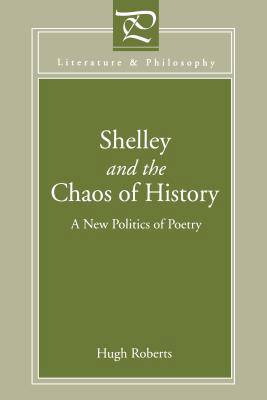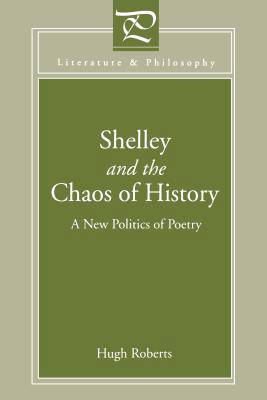
- Afhalen na 1 uur in een winkel met voorraad
- Gratis thuislevering in België vanaf € 30
- Ruim aanbod met 7 miljoen producten
- Afhalen na 1 uur in een winkel met voorraad
- Gratis thuislevering in België vanaf € 30
- Ruim aanbod met 7 miljoen producten
Omschrijving
What is the role of poetry in bringing about change? This book explores that question in the writings of Percy Bysshe Shelley, examining his fascination with the role of contingency in physical and historical processes. In considering the long-standing debate over Shelley's philosophical stance, Hugh Roberts turns to the poet's reading of Lucretius to show how Shelley developed an alternative approach to the issues of history, change, time, and process--one that incorporates the most compelling features of skepticism and idealism. He sheds new light on the importance of De rerum natura to Shelley's thought, and through extended readings of The Revolt of Islam and The Triumph of Life he shows the poet struggling with the intellectual limitations of Romanticism and the Enlightenment and moving beyond them.
Roberts then deploys some of the key concepts from the new science of chaos theory to illuminate the wider implications of Shelley's approach. He shows how with the help of this new paradigm much that has seemed baffling about the poet falls into place--most notably a new understanding of political process that allows us to better comprehend Shelley's claim that "poets are the unacknowledged legislators of the world."
Readings of a number of Shelley's poems and prose works demonstrate the wide-ranging implications of this approach for our understanding of his entire oeuvre. Shelley and the Chaos of History presents a Shelley whose investigations into the nature of history and the role of poetry lead us beyond contemporary deconstructionist-historicist debates. It shows that the complexity of Shelley's engagement with the major philosophical issues of his time has been greatly underestimated.
Specificaties
Betrokkenen
- Auteur(s):
- Uitgeverij:
Inhoud
- Aantal bladzijden:
- 548
- Taal:
- Engels
- Reeks:
Eigenschappen
- Productcode (EAN):
- 9780271026053
- Verschijningsdatum:
- 15/09/1997
- Uitvoering:
- Paperback
- Formaat:
- Trade paperback (VS)
- Afmetingen:
- 152 mm x 229 mm
- Gewicht:
- 793 g

Alleen bij Standaard Boekhandel
Beoordelingen
We publiceren alleen reviews die voldoen aan de voorwaarden voor reviews. Bekijk onze voorwaarden voor reviews.











